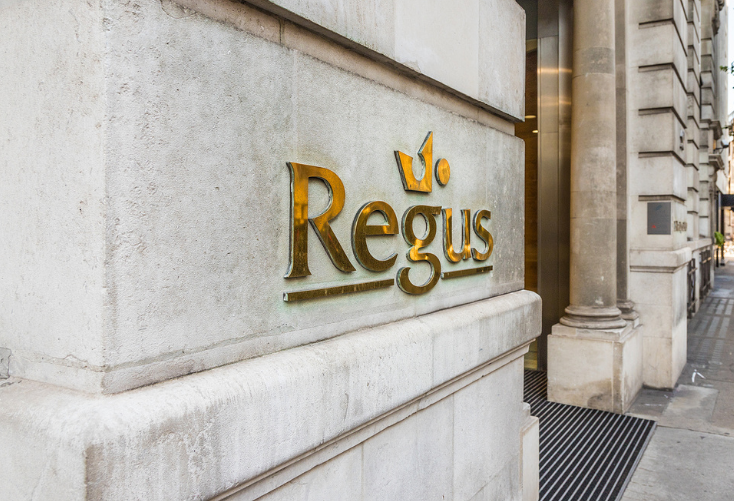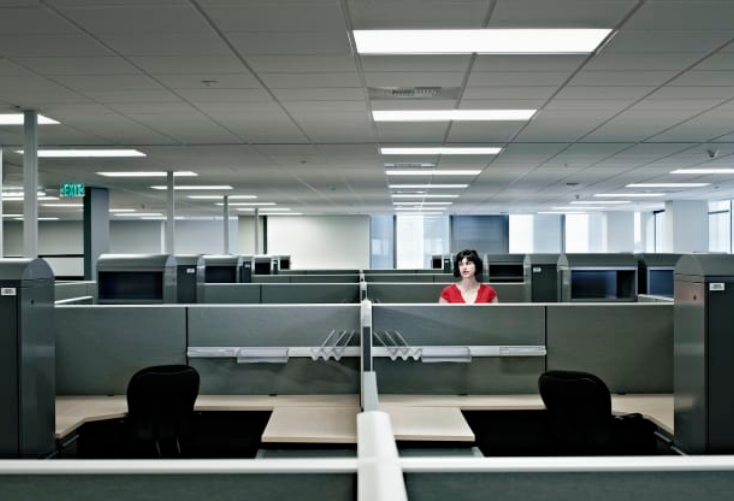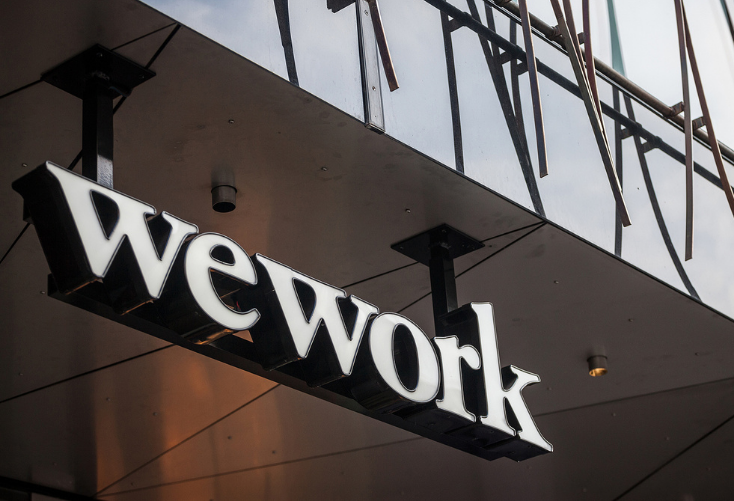Hand selected flexible workspace news from the most reliable sources to keep you ahead of the pack. We find all the latest news, so you don’t have to. Morning and afternoon updates. Stay in the know.
Here’s what you need to know today:
- Tim Cook’s Optimism On Remote Working NEW
- IWG Plans To Set Regus Into Insolvency NEW
- Second Wave Of COVID Could Be Detrimental To UK NEW
- Office Occupancy Levels Could Bounce Back In Five Years
- Equity Firm Takes Controlling Stake In WeWork China
- The Importance Of Staying Engaged When Working Remotely
Tim Cook’s Optimism On Remote Working
Tim Cook, CEO of Apple Inc., has expressed his confidence about employees’ ability to work remotely and expects that this new way of working will stick around for years to come.
In an interview at The Atlantic Festival, Cook added he does not foresee the workforce returning to normal operations in the future as “we’ve found that there are some things that actually work really well virtually.”
He added that 10% to 15% of Apple workers have returned to the office and still hopes that employees can come back to the company’s new Silicon Valley campus next year.
While Cook has been primarily optimistic about remote working, he admits that there is no replication of working in person with colleagues, which can help spark creativity.

IWG Plans To Set Regus Into Insolvency
IWG is preparing to set Regus into insolvency if landlords do not lower their rents. Like many other shared office operators, IWG takes out long-term leases then sublets them to companies on short-term leases.
The company also operates through several smaller subsidiaries that are responsible for their leases, which gives IWG the ability to place them into administration to walk away from their lease commitments. This news follows IWG filing bankruptcy for some of its affiliates across the US in order to provide breathing room while the company attempts to restructure leases.
Although IWG has not revealed how much it would save by filing for insolvency for Regus, The Times has reported it would relieve IWG of £790 million in lease agreements across 500 locations.
IWG has said that it is utilizing insolvency because “the Covid-19 pandemic is a black swan event and it has severely impacted our business and presented us with unforeseen challenges.”
While the company has expressed concern that the pandemic will continue to disrupt business into 2021, it remains optimistic about the future of coworking in general, adding that it is looking into expansion opportunities into suburban areas to accommodate growing demand for satellite offices.

Second Wave Of COVID Could Be Detrimental To UK
According to the annual Global Property Development Trends report, a second wave of COVID-19 could leave Britain’s high streets in major distress and close up to 12 million square meters of retail space.
Several months into the pandemic, many retail fronts have already been forced to close their businesses, which has led landlords to search for alternative tenants.
“Longstanding pressures faced by property owners and developers through declining retail rents and failures have now been exacerbated by the pandemic and its evolving impacts,” said Scott Morey, executive director at Altus Group. “However, the property industry is recognising opportunities that exist and will seek to repurpose assets during this period of uncertainty and well into the recovery stage.”
The report also revealed that non-food retailers were hit hardest by the pandemic, having lost up to £9 billion in sales this year.
Specifically, commercial offices are some of the most high-risk properties particularly as the UK government urges people to continue working from home. Even more, IWG is threatening to cut £790 million in lease agreements unless landlords decrease their rents.

Office Occupancy Levels Could Bounce Back In Five Years
New analysis from Cushman & Wakefield predicts that office occupancy won’t return to pre-pandemic levels for at least another five years.
According to the study, 215 million square feet of office vacancy has been lost throughout the pandemic and the net negative office square feet damage is expected to reach 95 million square feet by Q3 2021.
Cushman & Wakefield surveyed some of the world’s largest companies and analyzed the cyclical impact of the ongoing pandemic-fueled recession and how the shift to working from home has increased.
The firm’s chief economist Kevin Thorpe said that the research revealed two key findings: office leasing will be impacted and vacancies will reach record level, but the office market is expected to make a full recovery.
It is clear that remote and hybrid work arrangements will continue to grow, with the firm predicting remote workers will increase to 10 to 11%, while hybrid workers will increase from 32% to 36%.
“The myth that work from home is not productive has been busted,” said Harmit Singh, CFO of Levi Strauss. “I believe we will settle into a culture where working from anywhere will be the new norm, with work from home or office or a hybrid arrangement.”
Other major companies, like Google, have revealed they will experiment with hybrid arrangements to accommodate workers who want more agility.

Equity Firm Takes Controlling Stake In WeWork China
WeWork has revealed that it has raised a $200 million investment in WeWork China from Trustbridge Partners. This deal gives the Shanghai-based growth equity firm a majority stake in the coworking company’s Chinese entity.
Currently, WeWork China has over 100 locations across 12 cities and offers members access to outfitted workspaces.
As part of the deal, Trustbridge Partners’ operating partner Michael Jiang will serve as CEO for WeWork China.
“WeWork China has built a business that has cemented WeWork’s position across the region as the market leader in flexible space,” said Sandeep Mathrani, CEO of WeWork. “The value proposition and long-term potential for WeWork is increasingly clear as the demand for flexibility at scale comes to the forefront of businesses around the world. This investment is a testament to our business and in Trustbridge we have truly found the best local partner for WeWork China’s next chapter.”

The Importance Of Staying Engaged When Working Remotely
When companies first shifted to remote working arrangements several months ago, the perks made workers question whether they ever wanted to return to a physical office.
Although this style of working carries numerous benefits, it simultaneously presents many challenges in terms of engagement and connecting with colleagues.
By now, remote workers are probably used to relying on video conferencing and communication tools to keep in touch with colleagues. However, do these technologies truly replicate the connections we build when meeting face-to-face?
Business leaders have attempted creative ways to bring workers closer together, such as virtual happy hours, but time has proven that keeping remote workers engaged is difficult.
This could alter the employee-employer relationship now and in the future. With decreased connection, workplace community and culture become nonexistent. This could cause a dip in loyalty, higher turnover rates and less meaningful workplace relationships.
Still, the newfound freedom provided by a remote working arrangement is exciting. Giving yourself time for a midday walk, or taking an extra hour for lunchtime can serve our mental health well, but it must come with accountability to get work done and maintaining interactions with colleagues.
In order to provide a better balance of the two, companies will likely start gravitating towards a hybrid work arrangement that allows employees to come into the office a few days each week.



 Dr. Gleb Tsipursky – The Office Whisperer
Dr. Gleb Tsipursky – The Office Whisperer Nirit Cohen – WorkFutures
Nirit Cohen – WorkFutures Angela Howard – Culture Expert
Angela Howard – Culture Expert Drew Jones – Design & Innovation
Drew Jones – Design & Innovation Jonathan Price – CRE & Flex Expert
Jonathan Price – CRE & Flex Expert













